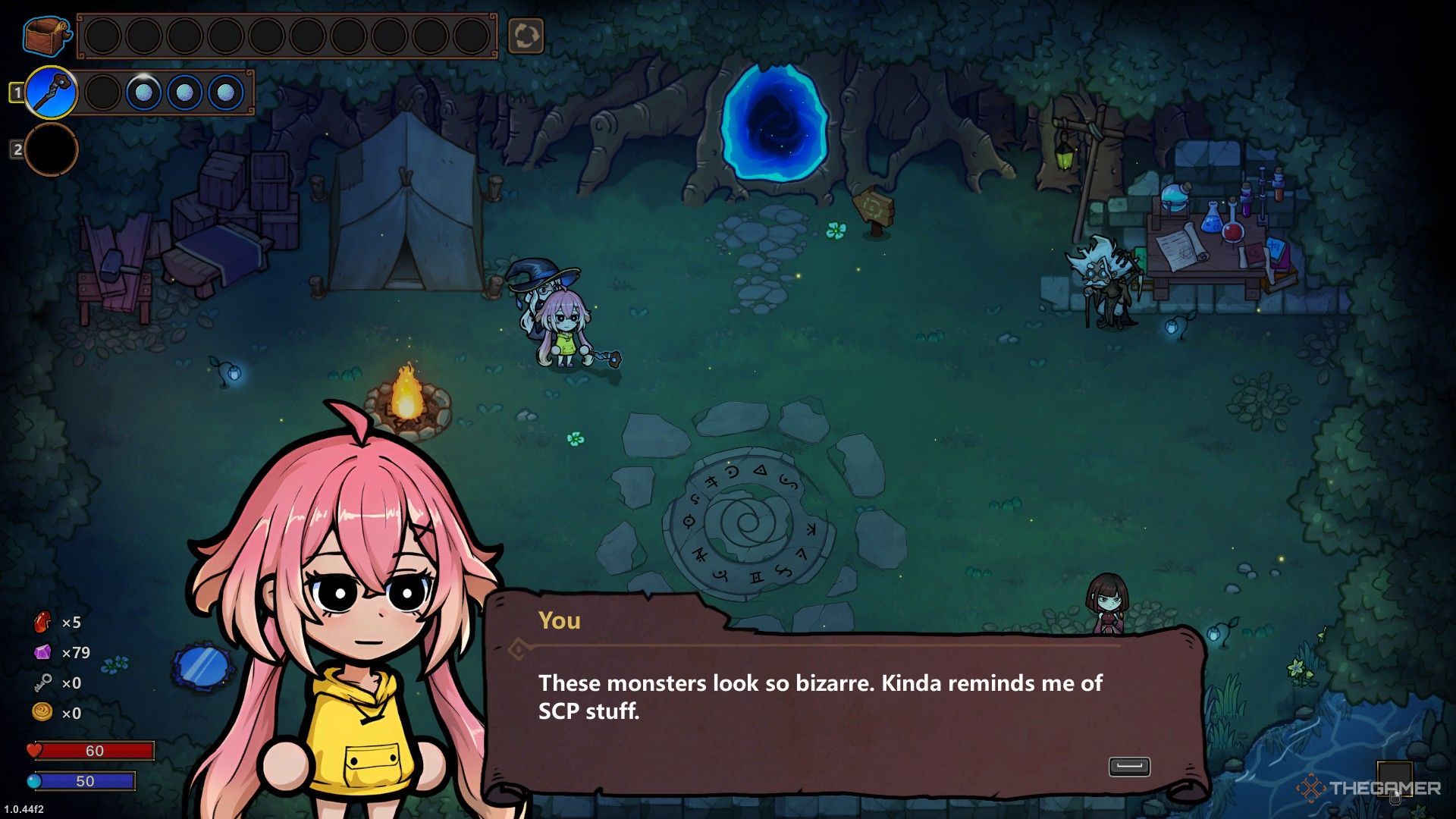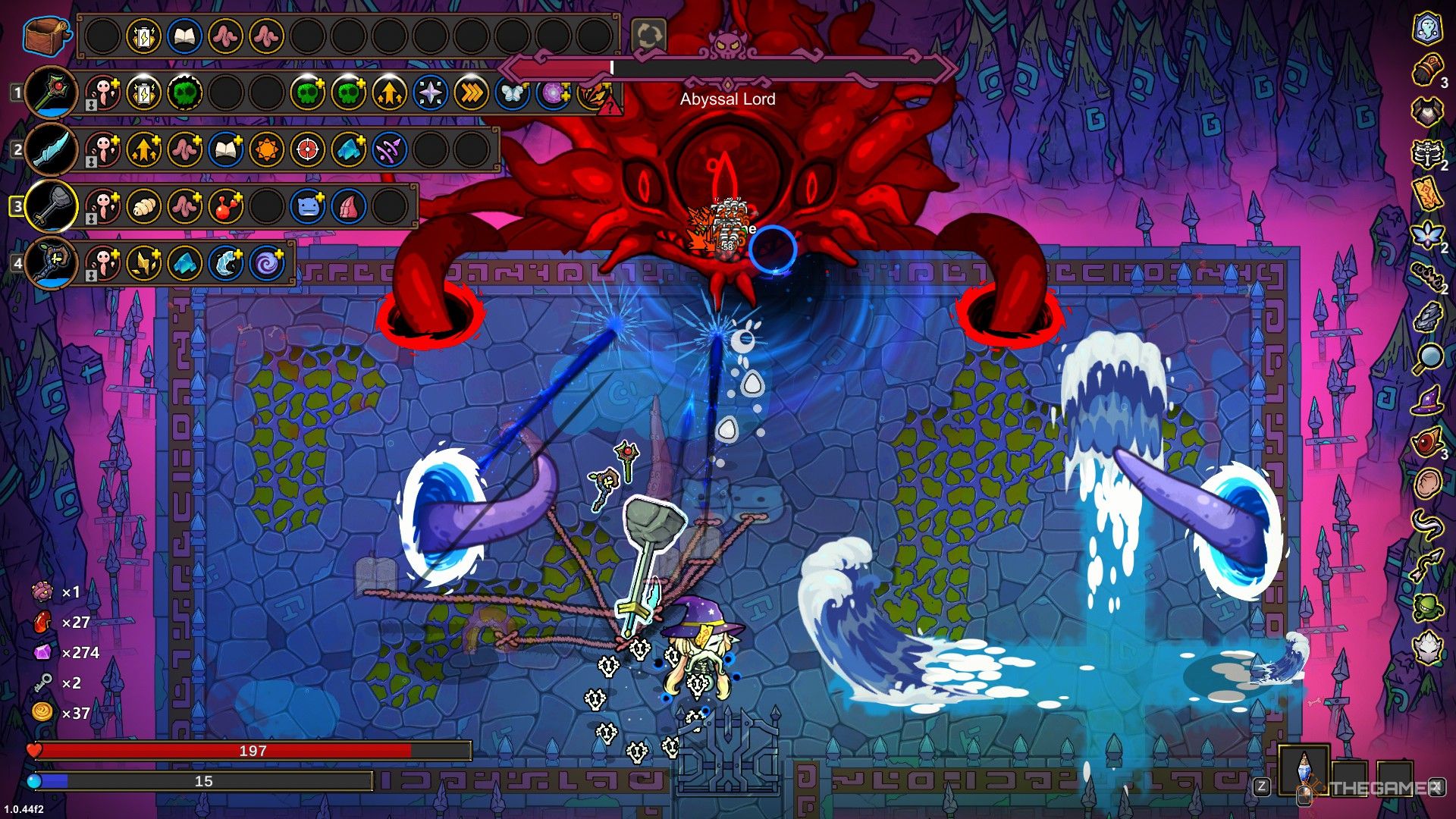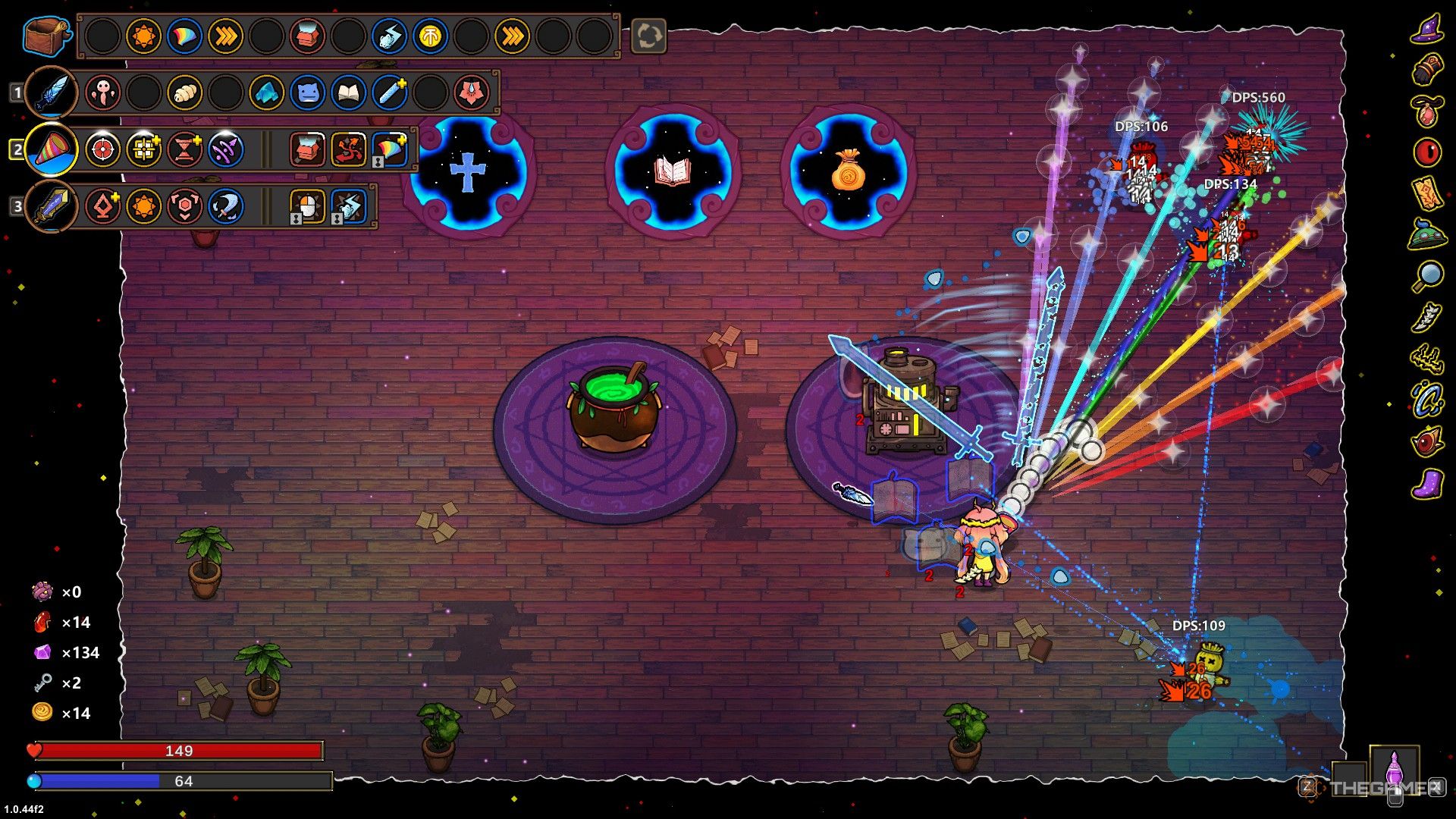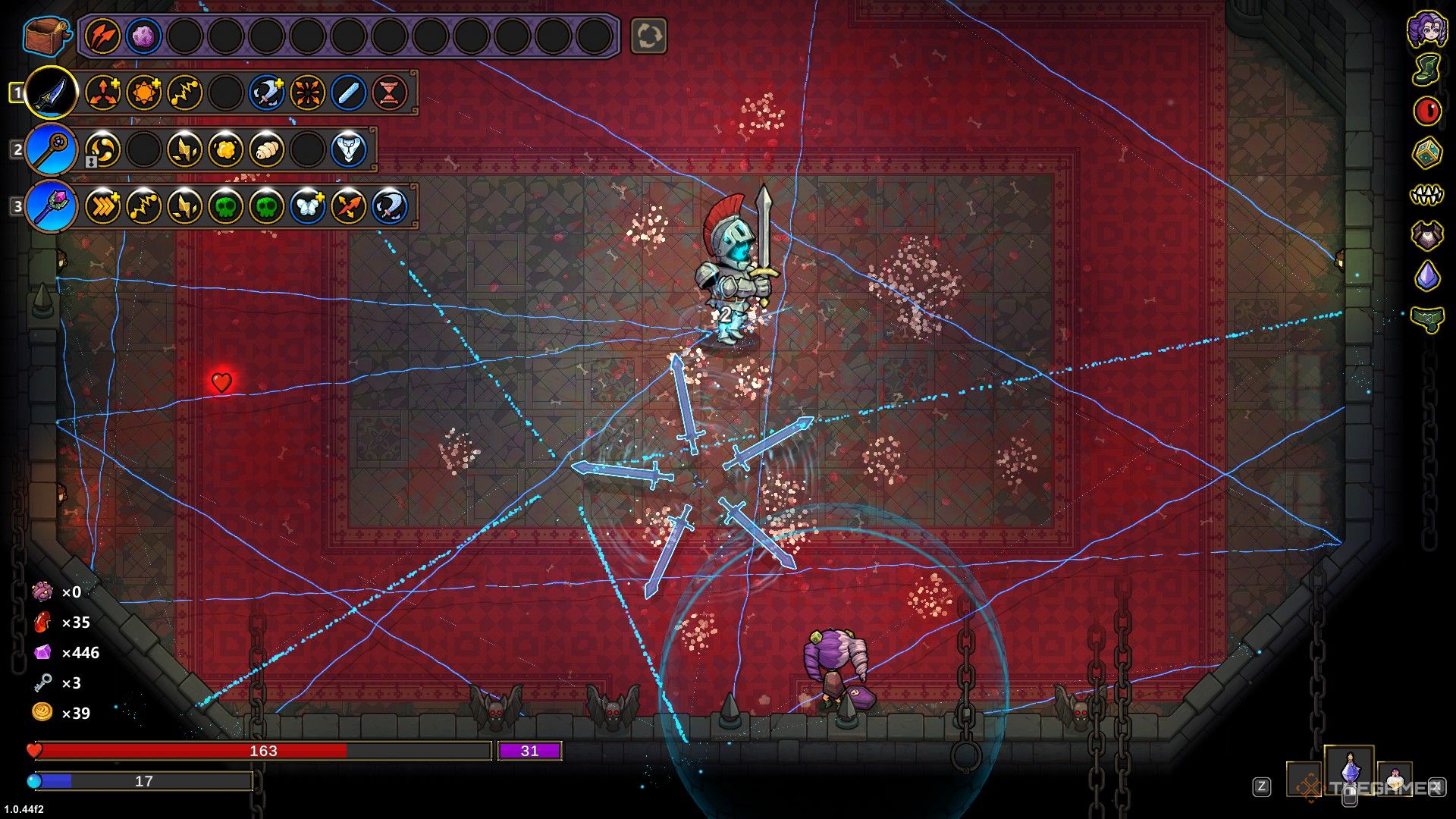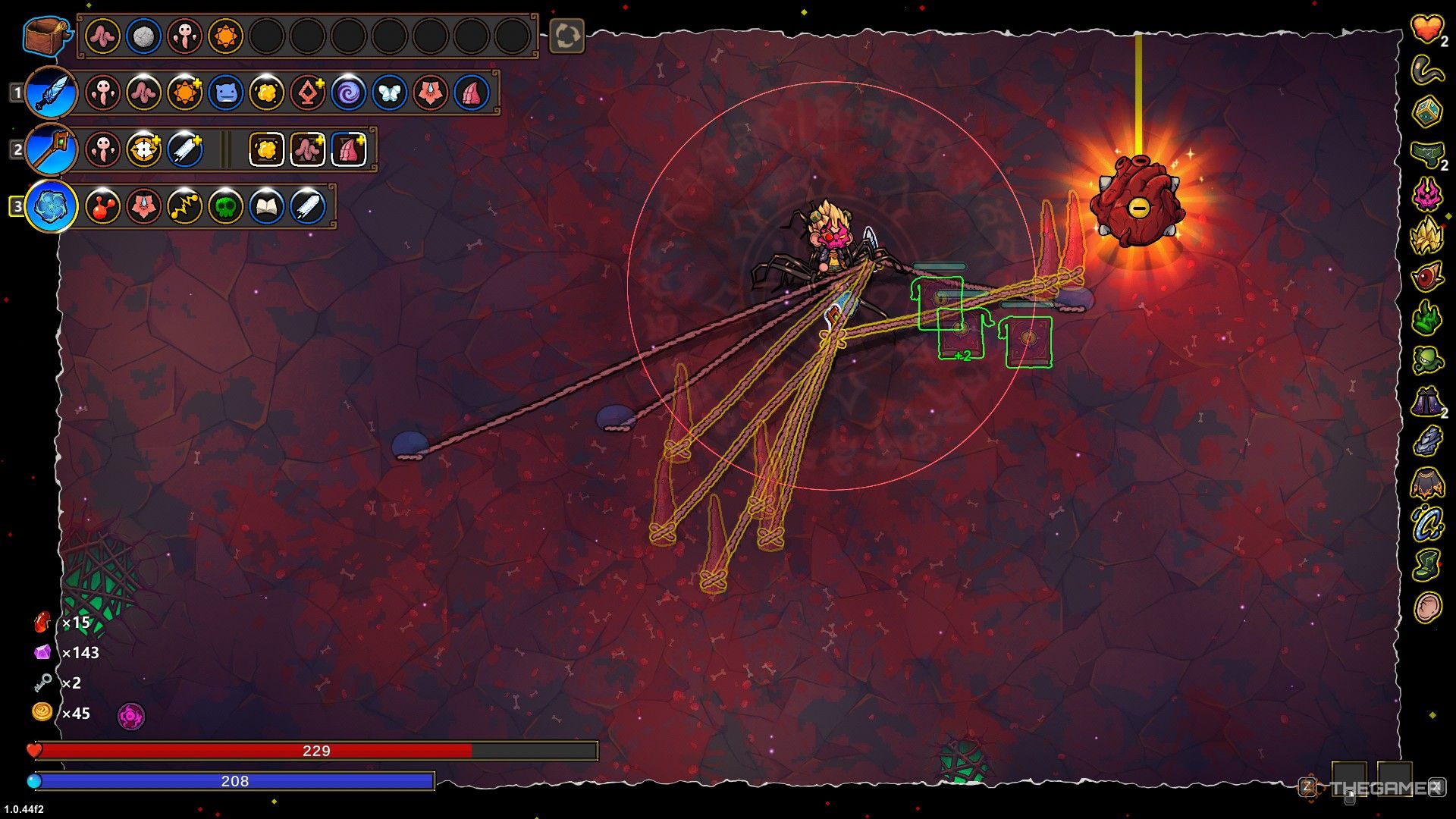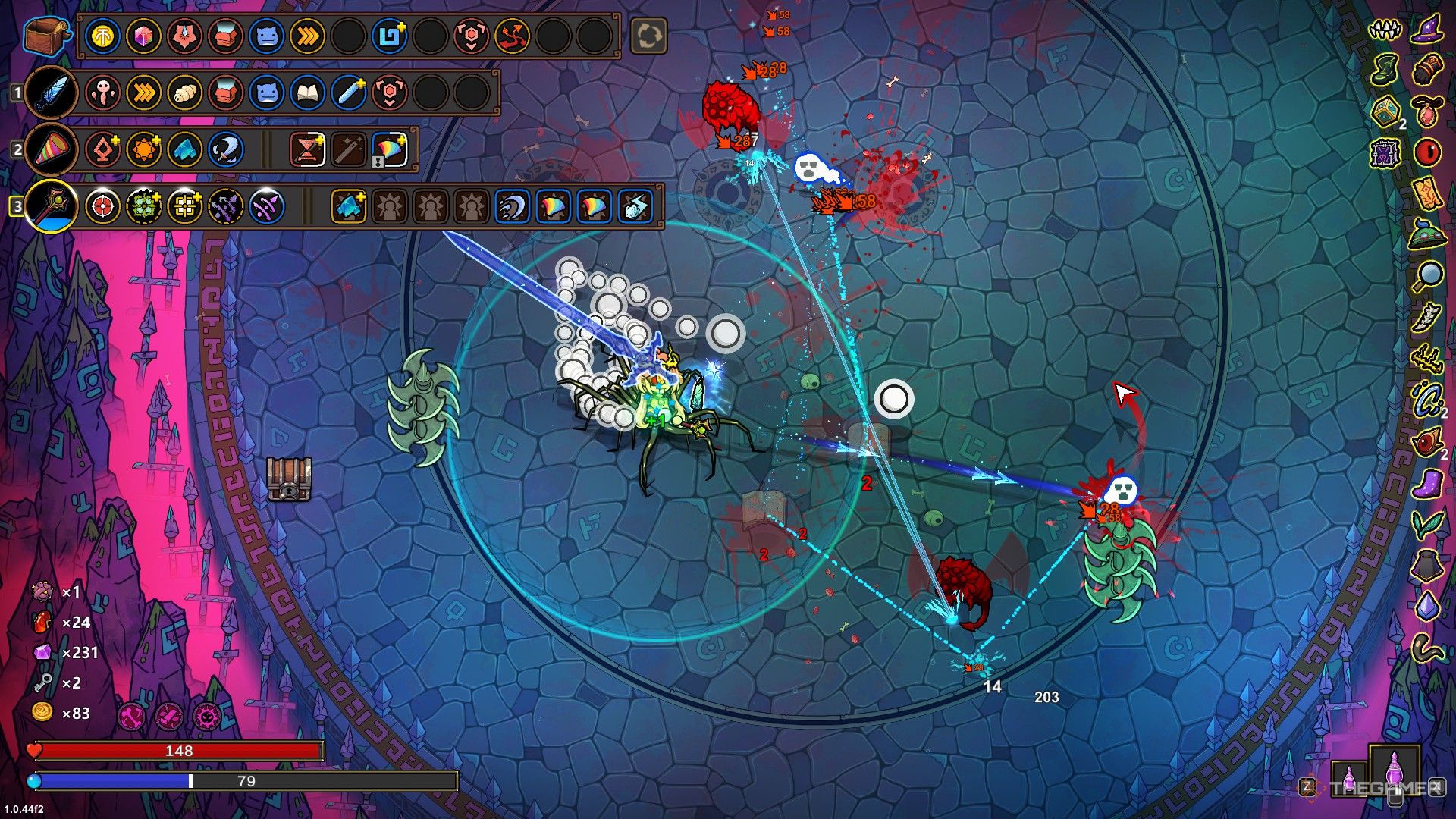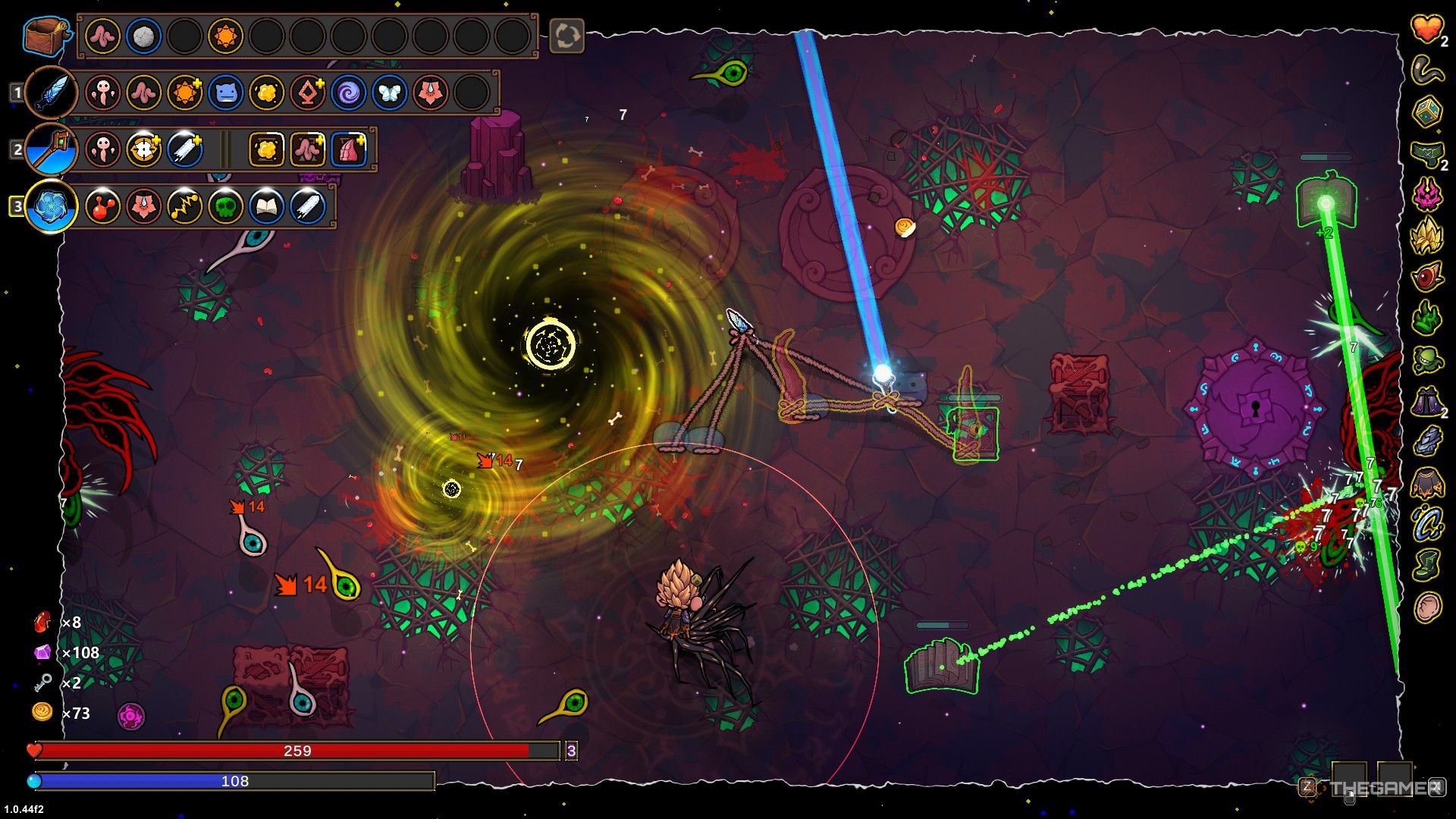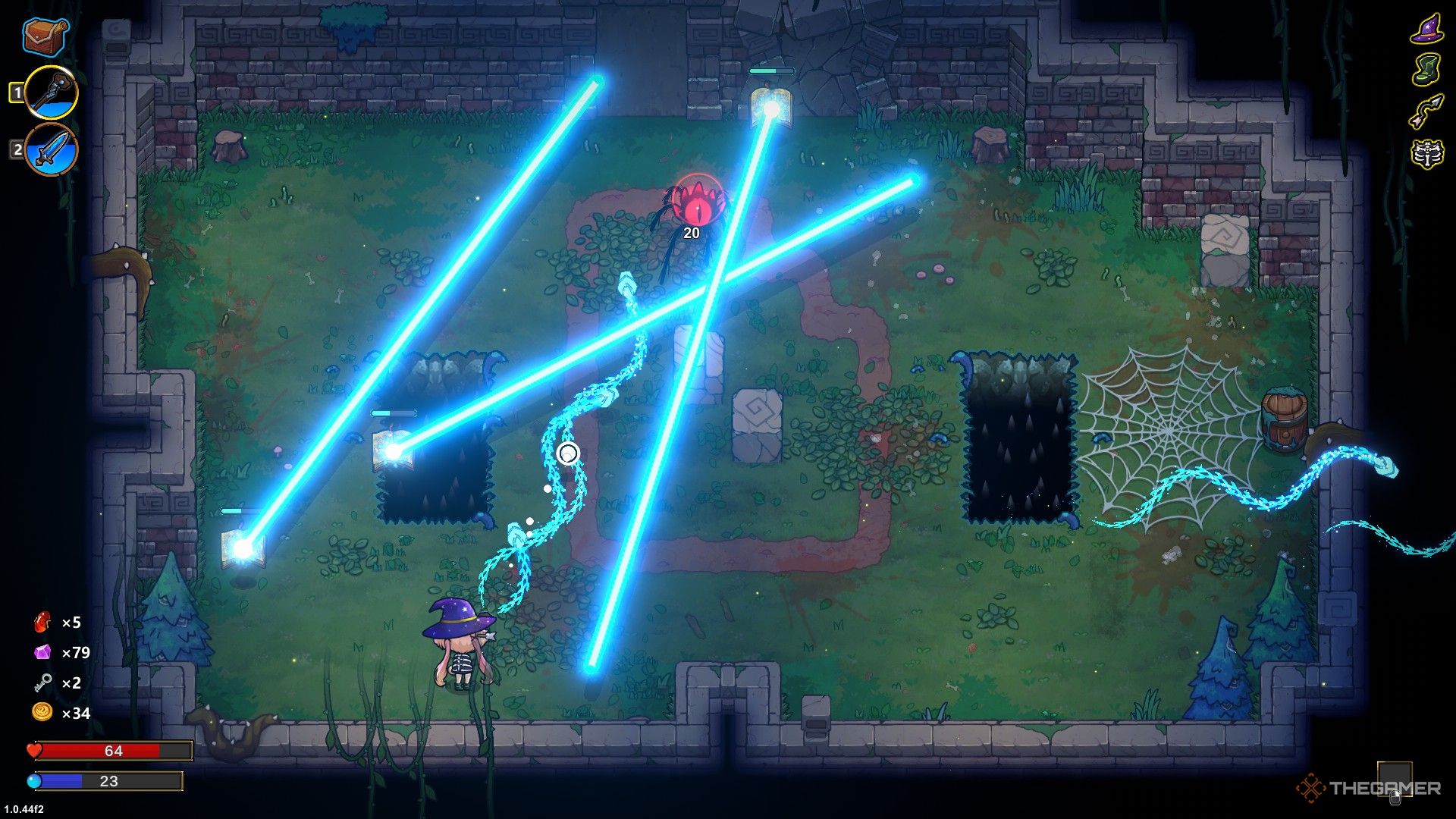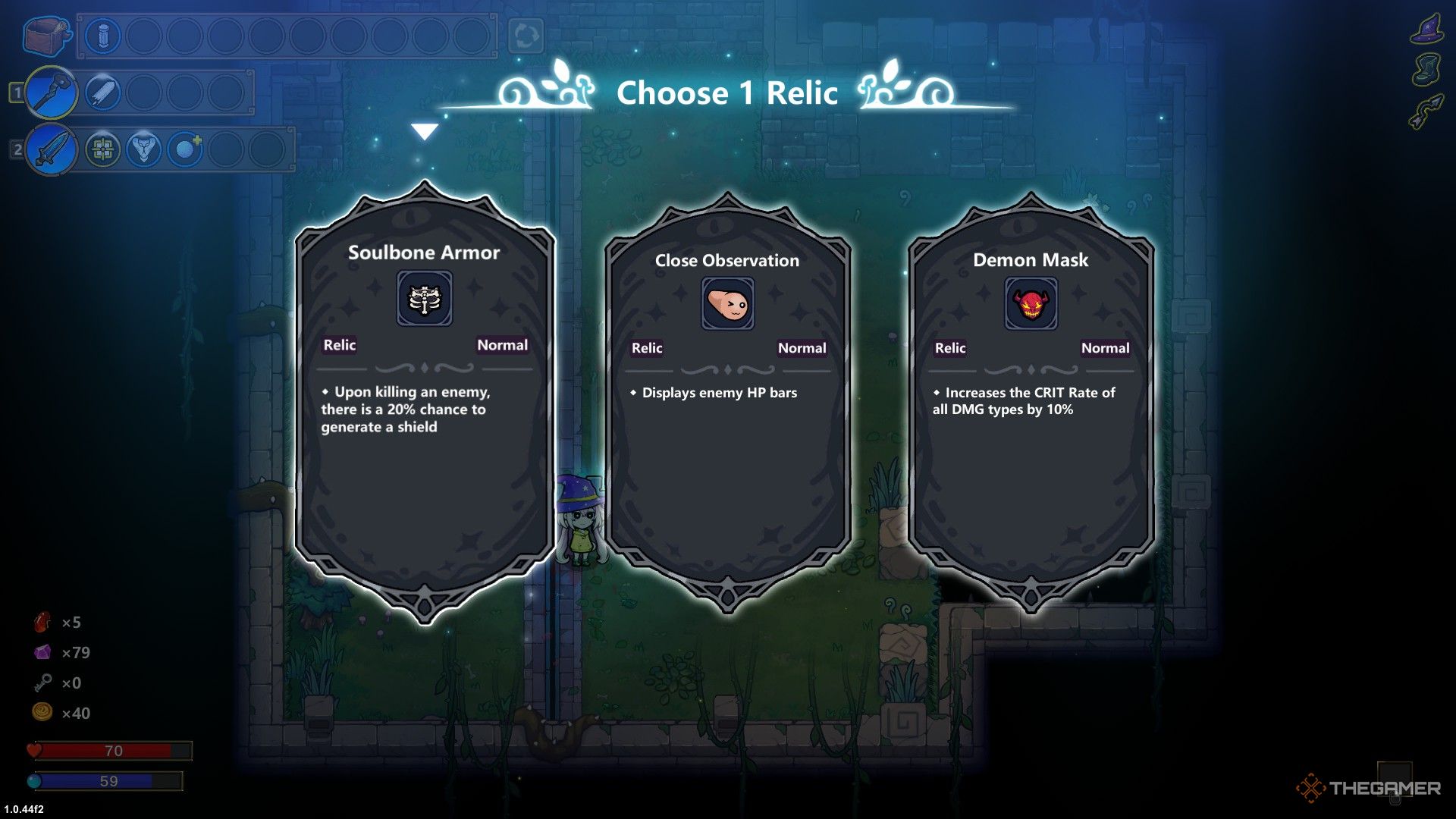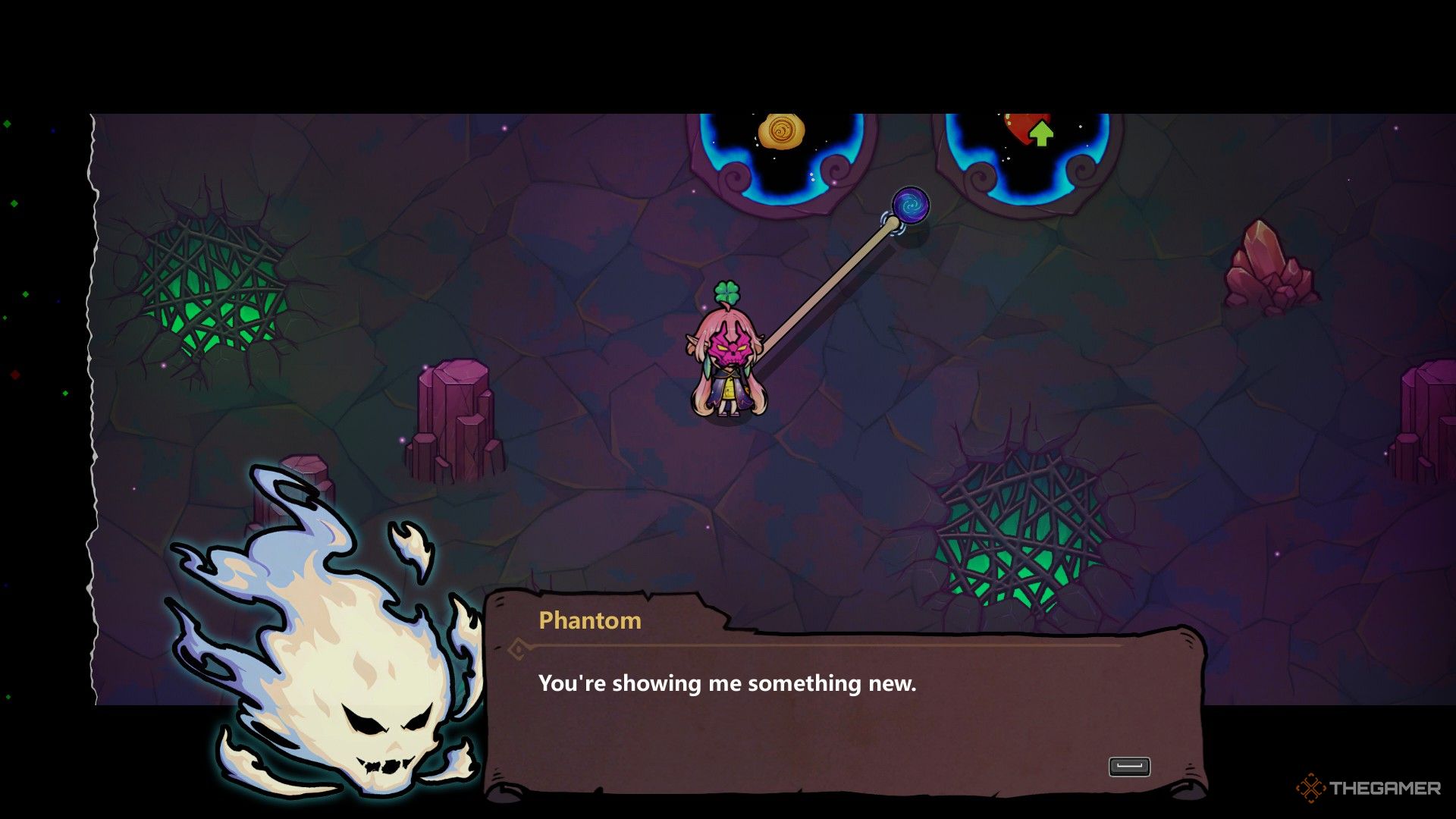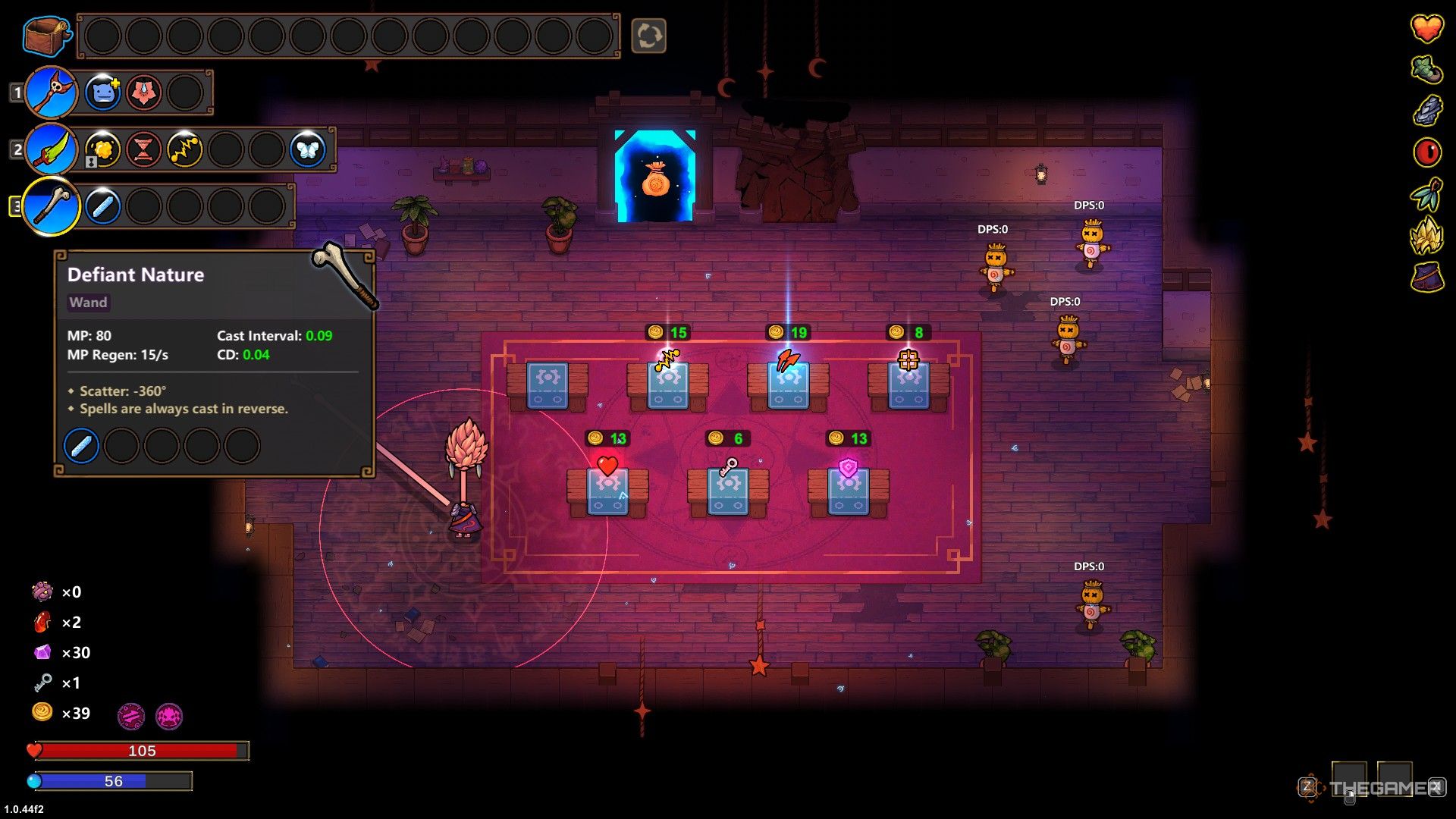[ad_1]
Magicraft‘s fusion of mechanics from different games makes it easy to get into but hard to master. A veteran of Binding of Isaac can struggle with the wand crafting, while a Noita expert can still have trouble dodging some of the complex attacks. A Touhou player will balk at the idea their hitbox contains multiple pixels.

Related
Best Roguelike Games For Beginners
While it can be difficult for a beginner to dive in, these games serve as a fantastic jumping-off point for newcomers to the roguelike genre.
Once you’ve learned the core mechanics of the game, it gets progressively easier to solve the seemingly impassable sections of gameplay. Knowing how to use the tools that you’re given makes challenging boss fights turn from tests of skill into solvable puzzles.
Upgrade Wand Capacity Early
One of the most expensive upgrades that Vivian offers is access to a third and fourth wand slot. Upgrades to what you can carry are very useful, and you’ll want to prioritise them.
Extra wands offer a variety of obvious and subtle improvements:
- They serve as extra storage space for spells if you run out of inventory slots.
- Each wand gives more total mana capacity and regeneration by swapping between wands.
- You’ll have versatility in preparing wands for different encounter types (such as separate attack wands for groups and single targets).
- Many wands have passive abilities that don’t require them to be held, giving continuous buffs even if you can’t use all the wands you’re carrying.
Three wands is a good number to aim for. This lets you have one attack wand, one for slower spells like summons and utility buffs. The third wand can contain a ‘panic button’ spell like lightning dash, or be another attack wand to alternate with while the other charges.
Mana Is Tracked For Each Wand Separately
The UI places your mana underneath your health, making it easy to think it’s an attribute of your character rather than your equipment. Each wand offers its own pool of stored mana and cannot draw from the other pools.
This makes wands with a high capacity and slow recharge surprisingly viable: Use them as alternate weapons rather than your primary tool. Some spells can consume a wand’s entire mana capacity, but make up for it with raw power.
Relics that upgrade your maximum mana or grant mana regeneration will upgrade all your wands at once!
The Crafting System Is The Secret To Success
The game’s main mechanic is the spell customisation. Veterans of Noita or similar games will have an advantage in learning the system, but there are still eccentricities you’ll want to learn compared to those other games.
You’ll want to learn how to modify your spells using boosts and passives. The early game can be trivialised by applying any form of simultaneous casting to your basic damage spells.
Here are some good objectives for the spell system that will also help with clearing your first few runs:
- Getting a wand to zero cooldown. Slotting in laser spells and burst modifiers can cheaply make a wand that deals massive quantities of damage. Doing the same with a late-game spell like mana absorption makes a weapon powerful enough to lag out some computers.
- An automated wand. Wand spirits, resonance runes, and secondary slots can all allow a wand to activate while not held and this can massively reduce the amount of juggling you need to do.
- Wands that duplicate spells. This is easier once you’ve unlocked some extra boost effects but can be done with the starting assortment. Spells that can cast other spells will do so for every projectile they fire. Rainbow spells are a starting tool for combos.
Mana Efficiency Is Better Than Raw Damage
Joining several powerful spells with linking boosts is a dazzling spectacle, but can drain a wand in a single cast. Long fights favour stacking up small damage efficiently to minimise the amount of time you aren’t doing anything.
Spells that don’t rely on damage pair excellently with any abilities that improve mana cost. Any spell that can deflect enemy bullets works marvelously whether cloned multiple times or cast cheaply, as can anything that applies poison, which ignores most damage modifiers.
Spells that modify cost must be slotted into a secondary slot to effect secondary spells. This means you can have different modifiers on the same wand in the primary and secondary slots.
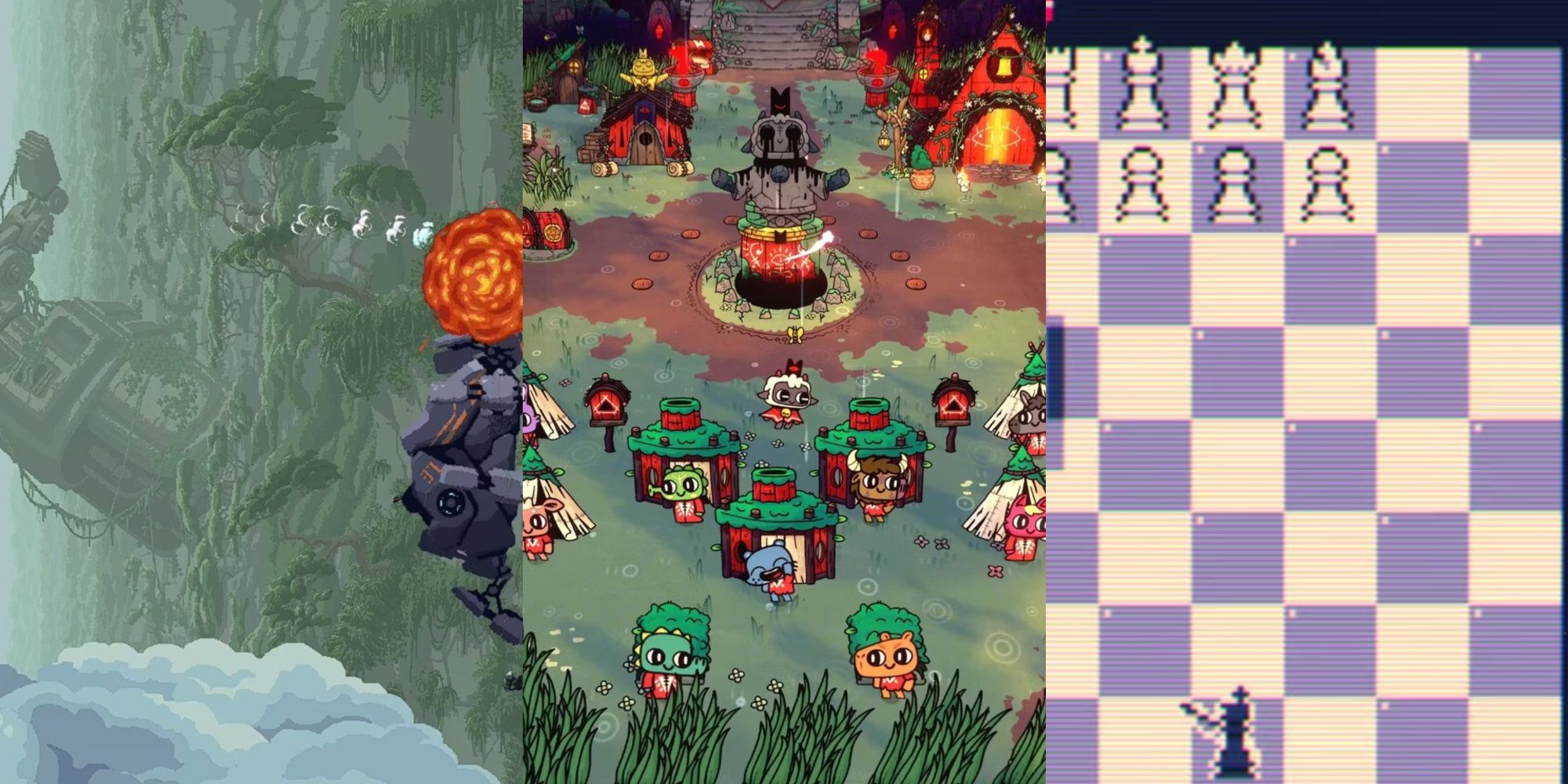
Related
7 Shortest Roguelite & Roguelike Games
Roguelikes tend to be on the short side when it comes to completion time, focusing on long-term replayability; here are some of our short favorites.
Use Status Effects Carefully
Status effects are a strong way of scaling your strength. Slowing or freezing enemies is equivalent to giving yourself more time to deal damage. Poison can accumulate to chew through massive health pools of late-game bosses.
Depending on the spells you apply your statuses too, they can work against you. Be careful of any projectile spells that leave residues on the ground. A poison boulder spell, for example, leaves a damaging trail that can hit you as easily as the enemy.
Optimise Your Secondary Slots
The secondary slots on your wand operate differently from your regular rotation of abilities, but they can easily multiply the number of things you do at the same time.
All the wand’s secondary spells will activate at once when charged up, but the charge needed scales to their total cost. You often don’t want to fill up all of the secondary slots, making them a great place for using your passive runes.
Here are two good uses for secondary slots in a wand:
- Added attack spells on your main offensive wand. This is straightforward and works well if the wand has a simple charging condition such as on-hit or on-use.
- Adding utilities outside the normal spell rotation. A dedicated summon wand can struggle with its rotation as each summon has a different population limit. Putting a rarer summon in a secondary slot limits how quickly they come out and stops them from clogging up the spell rotation.
Summons Are Strong In Normal Fights But Weak To Bosses
Summoned creatures are a great source of not only damage but also protection. They have their own hitpoint pools so can distract weaker enemies or even block bullets headed for you.
The downside of summoning is their ability to distract you. If your summons are impacting your dodging ability, you can set them to be transparent in the system menu.
Most late-game bosses have wide area attacks that limit your ability to spam out weaker summons. Summoner builds are still viable throughout the game, but you’ll want a way to rebuild your population as quickly as they die taking bullets for you.
Some Spells Have Unstated Effects
The description of a spell can miss a lot of detail about how it functions. You’ll often want to test them thoroughly outside of combat or against target dummies in the store before using them in combat.
A good example is the ray of disintegration. The spell’s description tells you very little other than that it fires a continuous beam. The numbers you’re given only tell you the cost and damage-per-second, but not the duration. You don’t know until trying the spell out how much damage it gives you, or how efficient it is on your mana.
You might not notice until it knocks you into a hazard that the spell has a stronger knockback than normal. This also makes it a difficult spell to auto-cast as it causes unpredictable movement.
Learn What To Focus On When Dodging And Attacking
Like most bullet hell games, the number of moving objects on the screen will quickly get frantic. The majority of those bullets will never hit you and the trick is often working out which attacks pose a threat and tracking them between all the noise.
There is an added layer of challenge in following both your own movements and lining up your attacks. If you’re struggling, it is normally better to focus on defensive movements. You’ll learn the dodging patterns and can rely on non-aiming attacks to handle enemies.
Some relics can make dodging harder by modifying your hitbox or confusing your vision. Some relics move the position of your head away from your body, either upwards or to the side. This is a purely cosmetic change but makes dodging difficult: No matter how your head is contorted, your body is what you need to protect.
There is an accessibility option in the settings to prevent relics from confusing your hitbox. Other visual changes will remain but your head won’t move about to trick you into dodging wrong.
Cursed Chests Are Normally Worth The Cost
It’s intimidating to take on a known penalty for an unknown reward, and that can trick you into avoiding cursed chests and other challenge rooms.
Most curses are highly manageable or can be removed quickly. On average a curse might be worth 15 hitpoints of either direct or indirect damage and curse chests will routinely have relics and upgraded spells that are worth this cost.
Be more careful of curses that are less easily quantified. A curse that reduces mana recovery might seem minor but can throw off the rotation of your wands or stack with another effect to have an outsized impact.
Most effects for curse removal will select a random one. Taking several mild curses can make it more difficult to remove the stronger ones.
Negative Effects Can Still Be Useful
There are very few ‘dud’ items in the game. Every wand, relic, and spell has a potential use, even the ones that seem to have crippling weaknesses.
- A good example is the defiant nature wand that always shoots backwards. It boasts better stats than average and is the perfect complement to the curse that makes you always shoot backwards. The two negatives cancel each other out!
- The restless fey wand drains mana when held. You can completely ignore the drawback if you use a wand spirit to carry the item for you, making it one of the strongest weapons in the game.
Many items or curses with seeming negative effects can be used to create novel synergies.
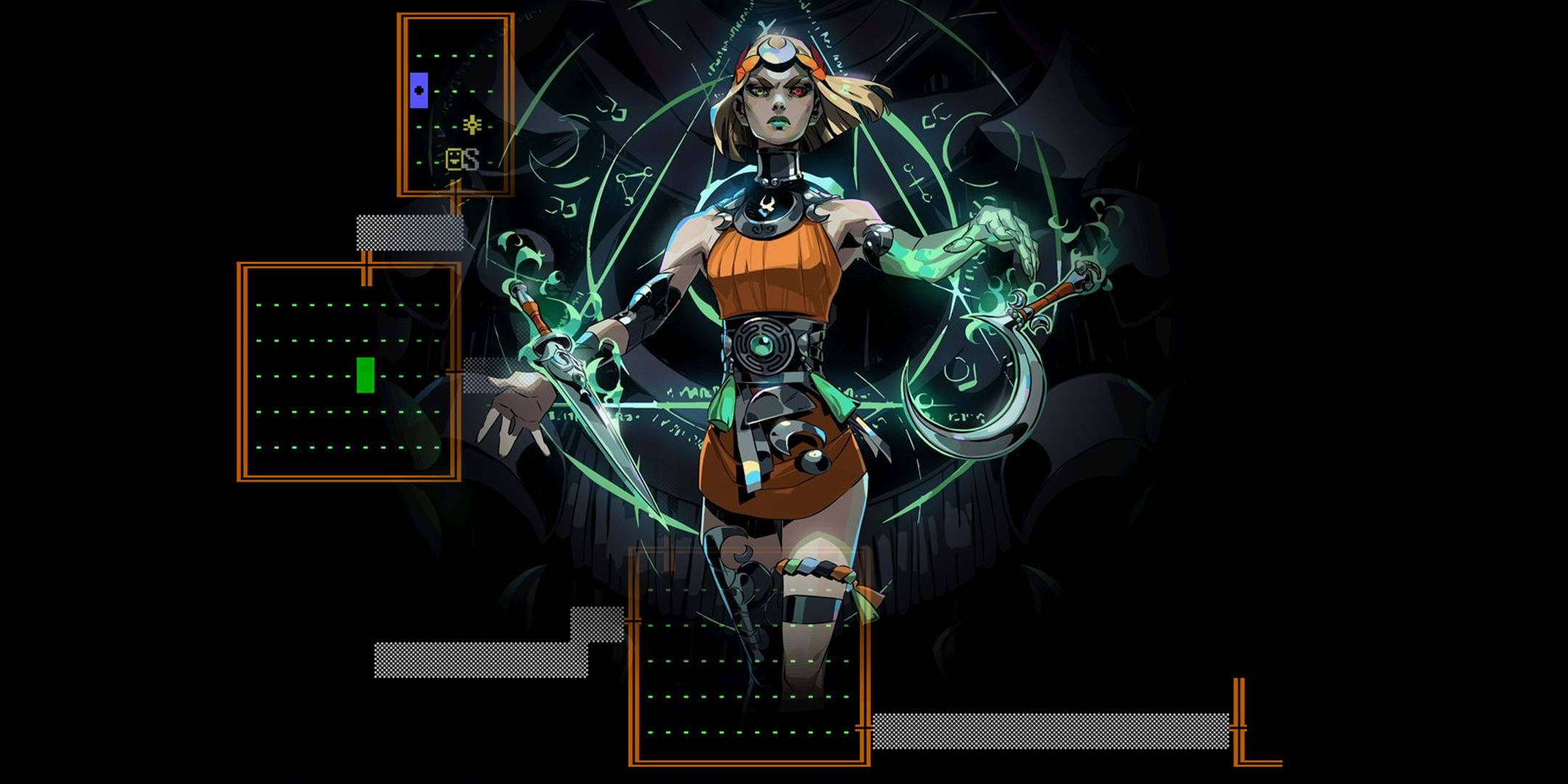
Next
Roguelike Vs. Roguelite: What’s The Difference?
Permadeath and procedural generation are a big part of both genres, but what is the difference between the two?
[ad_2]


